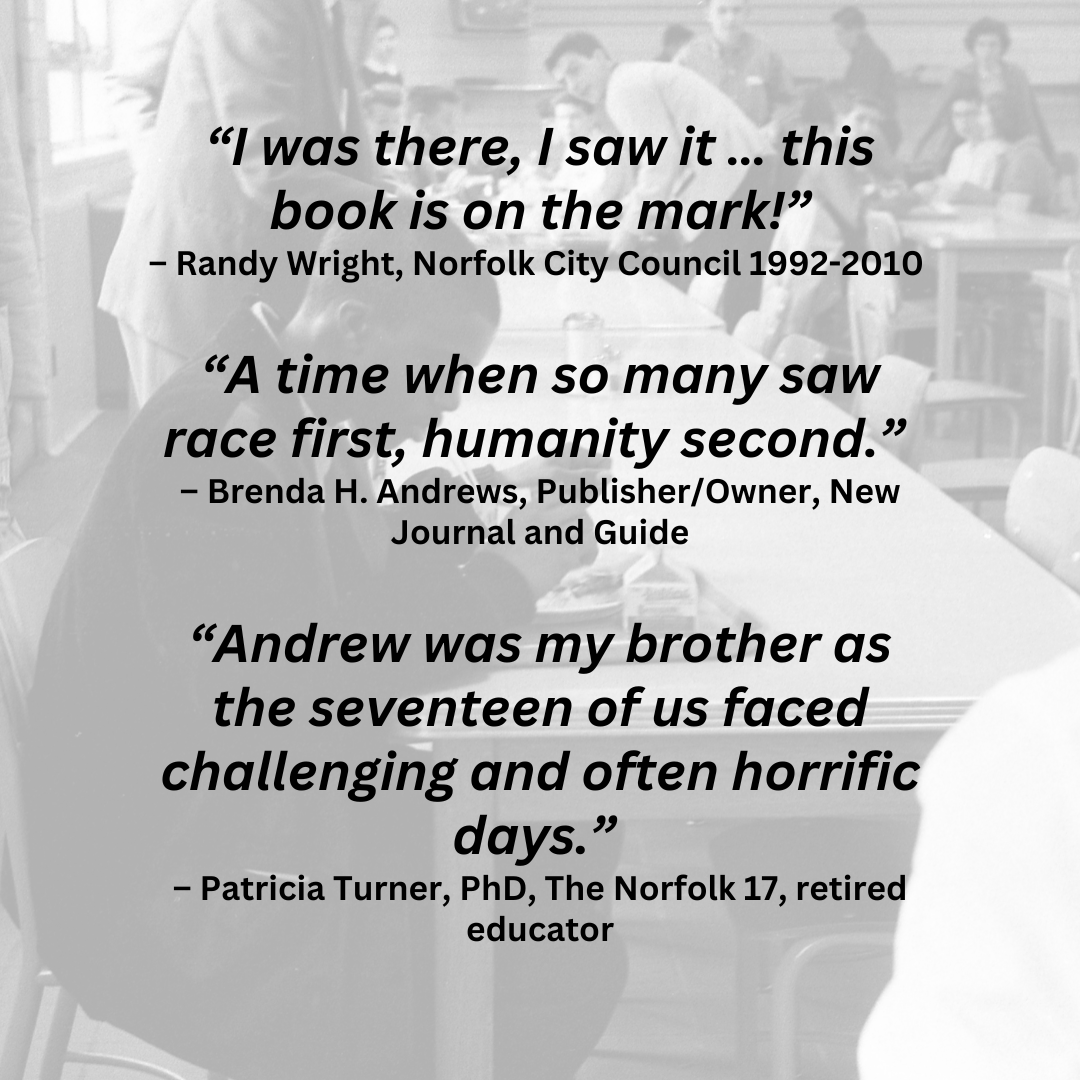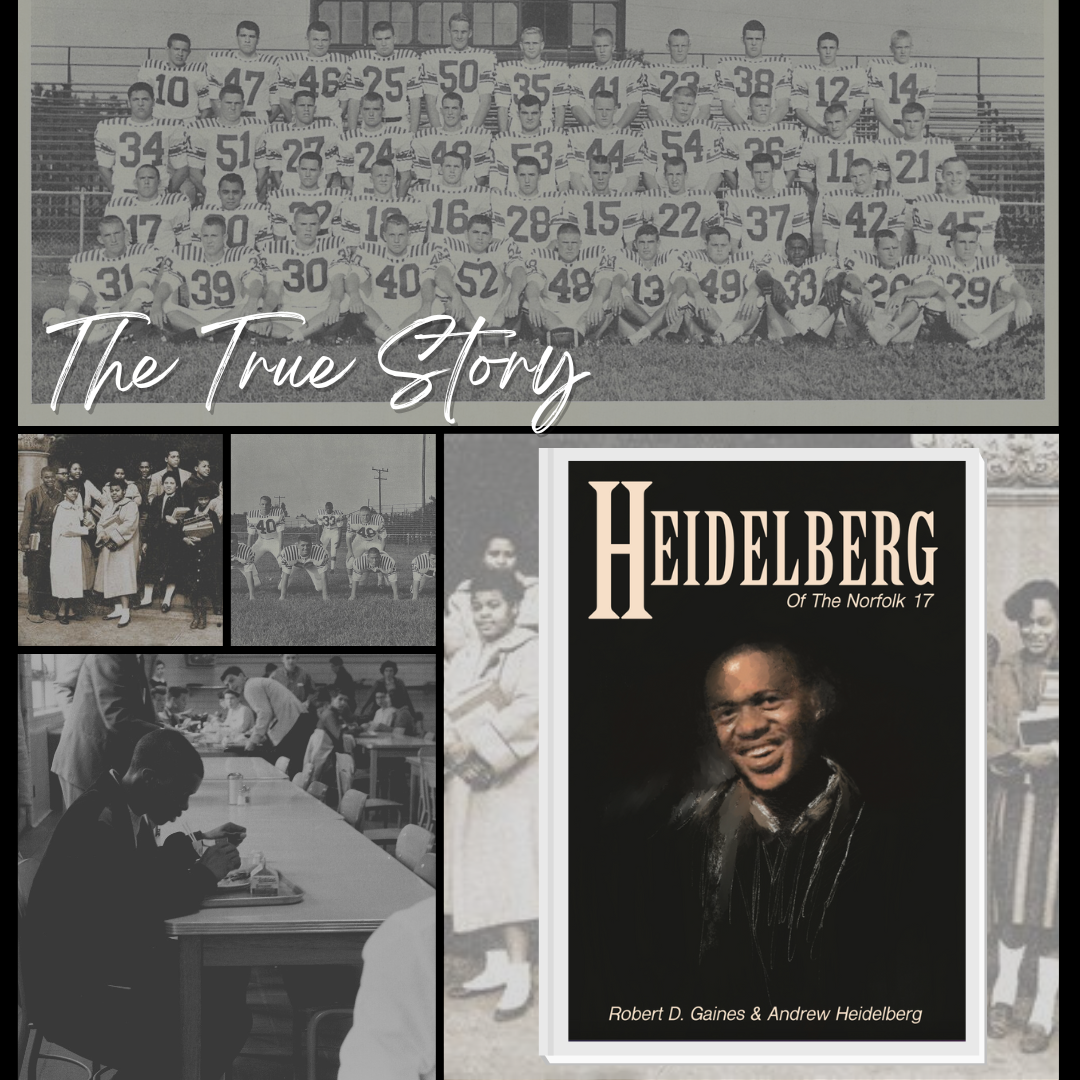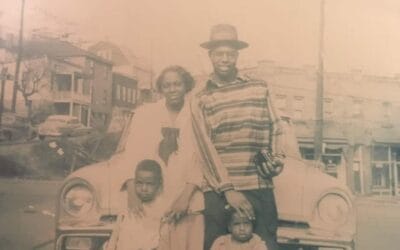Black History– On This Day in 1959
The Norfolk 17, February 2, 1959
Sixty-five years ago today, seventeen cautiously brave Black teenagers rocked the foundation of the racist South, accomplishing what many at the time had thought impossible … ending segregation at six public schools in Norfolk, Virginia. If getting there had been a war, being there was horrendous.
Frightening? In classrooms, white bullies pelted the Black kids with spit wads and slurs. Teachers looked the other way, either bigoted or simply afraid to take a stand. The hallways were worse, the bathrooms near deadly.
The most famous of the Norfolk 17 would be Andrew Heidelberg, the first African American to play “white” high school football in the South. His impact in the prejudiced world of the late fifties and early sixties is the focus of a powerful work of humanity, humor, absurdity, and survival … Heidelberg of the Norfolk 17 by Robert D. Gaines and Andrew Heidelberg (Hidden Shelf Publishing House).
“Andrew was an amazing and complex person,” said Gaines. “The non-stop abuse he and the other sixteen Black teenagers faced every day was both horrifying and surreal. He survived by his wits, his tenacity, and his phenomenal talents … but the scars went deep.”
Read an excerpt from Heidelberg by Robert D. Gaines and Andrew Heidelberg

Recent Posts
Send Judah First Giveaway
Martin Luther King, Frederick Douglass, Harriet Tubman, Oluadah Equiano; all familiar names that have been readily adopted by American history. These Black history figures have been canonized for oratory skills, abolition work, or for being a first. While their exploits are worthy of consideration, our history books have ignored countless members of society whose exploits are not chronicled, remembered, or celebrated by many.
Dr. Anthony Todd Carlisle on Family Legacy
When I think of family, I think of fragmentation.
I was nurtured in the Pennsylvania mill town of Ambridge, raised by my maternal grandparents, Perry and Ellen Carlisle. My mother, Janice, moved down the road to Pittsburgh and my father, Butch, lived in Grand Rapids, Michigan.
Non-Fiction November
As the spring blossomed into summer and assumptions of a temporary quarantine faded into a more dismal reality, I stacked my new books back on the shelf in favor of some old favorites. I needed the familiar cadence of pages I had turned countless times. I needed to know what to expect, what the ending would look like, and what emotions would surge.




